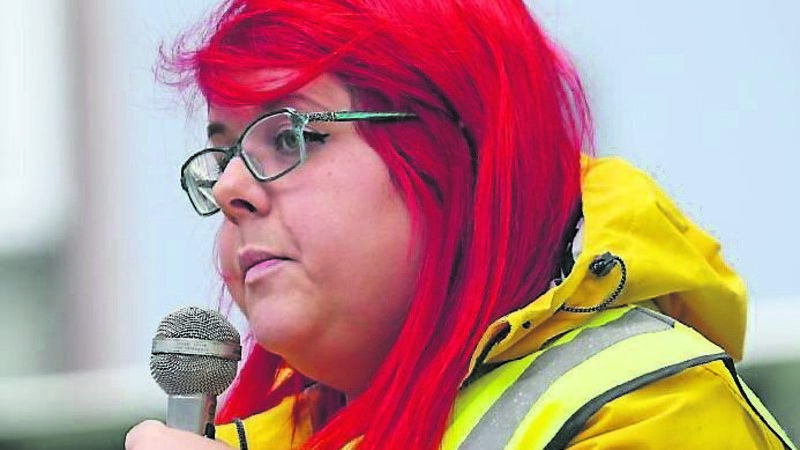'It has had a lasting psychological effect': Report details restraint and seclusion of children with disabilities

Rebecca O’Riordan, of Families Unite for Services and Support (Fuss), said the findings of a survey on seclusion and restraint in schools were saddening, but not surprising. Picture: Jim Coughlan
A CORK advocate for a group supporting parents of children with disabilities in their fight for adequate services has said that the findings of a survey on seclusion and restraint were saddening, but not surprising.
In the national survey, parents shared harrowing tales of how their children with disabilities have been rugby-tackled, locked in rooms, and left with bruises by school staff. Inclusion Ireland and AsIAm, which shared the results of the survey, are urgently calling for guidance and regulation for schools concerning seclusion and restraint.
The survey shows that 35% of disabled children experience seclusion, while 27% of disabled children suffer restraint at school.
Parents shared stark stories, writing that “sensory rooms are often misused and treated as cells” and sharing that their child “was lifted by arms and legs by teacher and SNA into a sensory room and told she wasn’t allowed leave, she was bruised from this”.
One parent wrote that her child was “dragged across a school floor into this safe space [seclusion room], where he stripped naked multiple times due to distress”.
“The door was held shut while multiple persons were outside the door holding it. An animal would not be treated this way.”
Two parents wrote that teachers had physically removed their children’s hands from their ears when they were overstimulated with noise, one adding that the teacher had been shouting in his face at the time when his arms were “forced down and held down by wrists”.
Another parent recalled: “He attempted to leave the room abruptly without permission and was rugby-tackled to the floor by the female teacher. She held him there for a while and shouted at him about how struggling was futile due to her superior strength.”
Another parent said their autistic junior infant was “restrained and dragged, screaming, the length of the school line when he wouldn’t walk in with his class” by “an experienced SNA”. They also reported the effects of this restraint or seclusion, saying that their child “stopped speaking for months due to the trauma of it”.
Another parent said:
“It has had a lasting psychological effect on him.”
Others heartbreakingly shared their worries about their nonverbal children, one parent writing that “our daughter wouldn’t be able to tell us and school wouldn’t tell us if they did this”.
Speaking to The Echo, Rebecca O’Riordan, Cork advocate for Families Unite for Services and Support (Fuss), said that they were “saddened but not surprised, unfortunately, by the report into seclusion and restraint in Irish schools”.
“We urgently need guidelines on seclusion and restraint in our schools to tackle the creeping culture that is developing in the absence of robust public services for children, keeping children’s rights and dignity at the centre, to ensure that we do not continue to roll back the clock on both children’s rights and disabled persons’ rights,” said Ms O’Riordan.










 App?
App?


